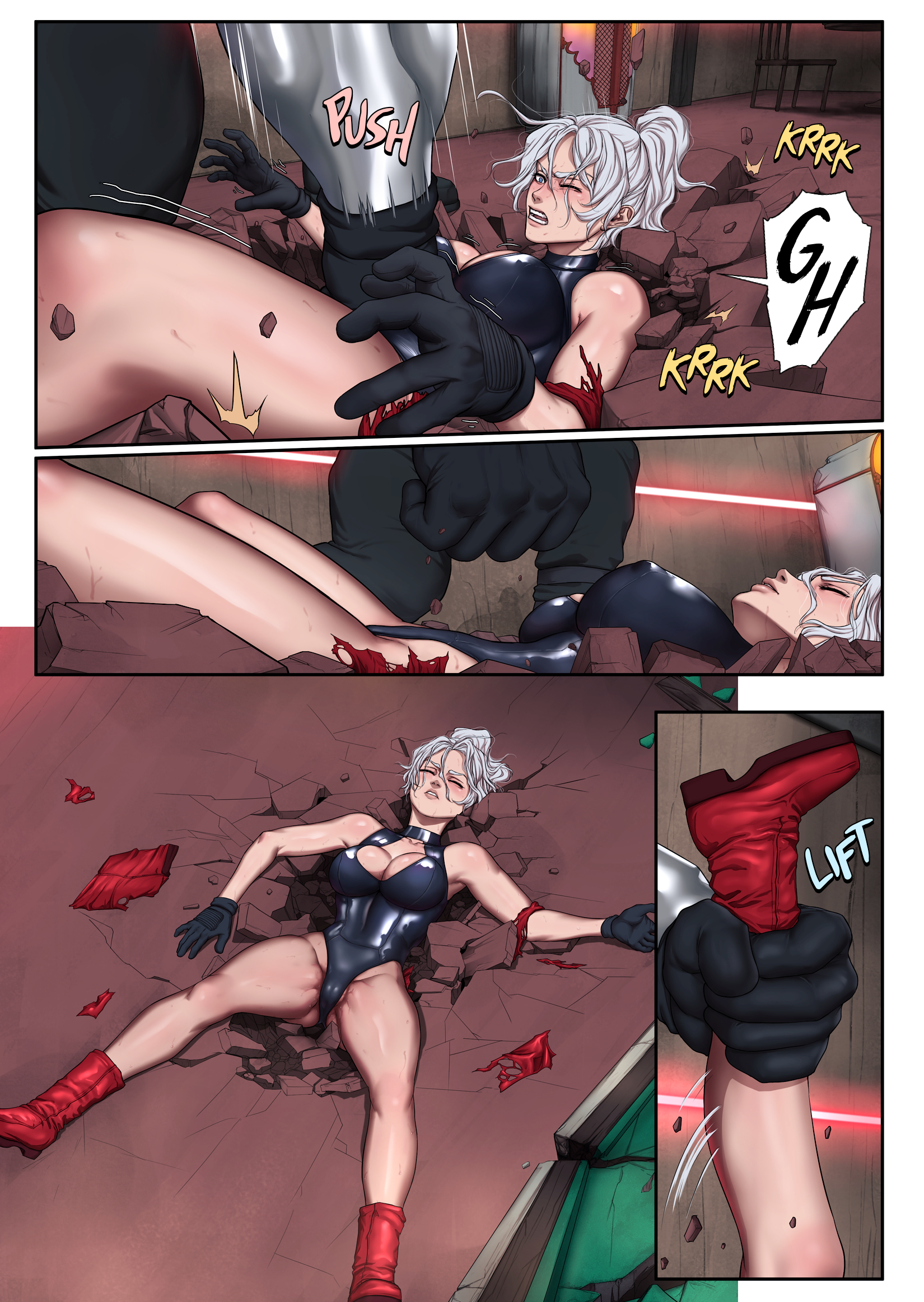Chapter 22, Page 54
The following is an article from Global Defense, a quarterly publication offering news and analysis on subjects and trends in weapon technologies, market developments, defense policy, legislation, military budgets, issues affecting the industrial base, and insight geared towards defense professionals in both private and government sectors. [Article originally published 2 years ago.]
REIKAWA’S REVOLUTION
By the end of this year, dozens of companies are expected to unveil their latest in “bleeding edge” security androids and, in turn, will populate the marketplace with both superior quality product and woefully substandard junk.
Fortunately, “substandard” is a foreign term to Reikawa Industries, one of the leading companies specializing in autonomous security products. Their Reikawa Sentry Model (RSM) androids, particularly the Series 80 line, has earned them widespread praise, extensive profit, and propelled them to the forefront of the industry. Headquartered in Neo Edo, Reikawa is fast becoming a powerhouse in the security sector, now working with both private and government contracts worldwide.
We here at Global Defense have written extensively about Reikawa Industries’ RSM android line. Three years ago, we ranked the RSM-83 as one of the best security androids currently on the market. Hulking, intimidating goliaths, the RSM-80s were initially intended for executive protection to safeguard politicians, CEOs, and celebrities (ie. anyone with enough money to afford one). They have since been used to guard embassies, corporate headquarters, banks, luxury apartments, private clubs, sporting events, and high-end venues.
Global Defense was recently given a private demonstration of the new RSM-86 and, despite our endless approval of the RSM-83 and subsequent models, the 86 actually manages to outshine them in just about every conceivable way.
Last year we sang praise of the RSM-85 and stated that Reikawa Industries may have difficulty improving upon its design. Reikawa was up for the challenge as the RSM-86 has a host of new features. First is its Quad-Core Radan Processor, which surpasses the 85’s Dual-Core. The 86 is able to process data twice as fast, ensuring that it always acts quickly, efficiently, and can identify multiple emerging threats without any human aid or resources.
Powered by a Gans-Vier Ion Core, the RSM-86 had nearly triple the energy storage/output of previous models and can go weeks without entering rest mode.
The RSM-86 features an upgraded xetanium body (previous RSM models used aralite), allowing it to withstand heavy machine gun fire. In the demonstration we witnessed, the RSM-86 shielded a mock VIP from a barrage of .50 caliber rounds and remained completely functional.
Tactile sensors are now built into the RSM-86’s hands, which can scan an individual’s vitals. This useful feature allows the android to check on the status of the person they’re programmed to protect, or even the condition of a restrained/downed hostile. The tactile sensors require only brief contact and are designed to effectively scan through most clothing.
Unlike earlier models, the RSM-86 also features shoulder-integrated cooling vents to expel excess heat build-up. We were informed that this was a small concern with some of the early RSM-82 units, though the Reikawa representative we spoke to confirmed that the issue was resolved before any of those units were ever shipped.
Though the RSM-86 still has six months to go before it officially hits the market, Reikawa Industries has already sold out of pre-orders and informed us that demand for their latest model is four times higher than that of the RSM-85. Seeing the RSM-86 for ourselves, this comes as no surprise—Reikawa’s upcoming unit will undoubtedly raise the bar for the industry and set a new standard for quality.
What does this mean for the future of autonomous security products? Just a decade ago the entire industry seemed to be stagnating—now, if any company is capable of revolutionizing the business, it’s Reikawa.
Danger Zone One. Story by Midnight. Art by Salaiix.






















She is COOKED
Not going to lie. Madison’s in HELL Right about now. That’s what this is. Madison has somehow gotten thrust into hell by the Devine machinations of the gods themselves and the only way back into the realm of the living on Earth is to get past THIS Mechanized variation of Resident Evil’s Mr. X over here! Oh, yeah. She’s got SOOOOOOOOO Much on her table right now, and it’s literally going to take a MIRACLE to get her out of it!
This might be the toughest situation we’ve seen Madison in yet…
You’ve got me on the edge of my seat waiting for the next update!
As has been stated earlier, she has been hit with would be killing blows (note the damage on the floor). I hadn’t realized that this was a supers comic (Madison has to have high levels of damage resistance just to survive).
Reikawa…lifts and seperates
Honestly, if Madison recovers from this beat down, then she has to change her tune on having backup with her on all times.
Why? You think any backup would fair any better?
At the very least she would get out there alive.
Or, there are multiple bodybags instead of just one
In order to shatter that floor, which appears to be basic concrete, her internals must be little more than mush at this point.
Could that body suit be a form of silicon-elastic body armor? The kind that is normally flexible, but turns rigid under impact stress? That would shield her internals from fatal injury, though she’s still gonna have some hellacious bruises.
It’s definitely impact resistant
She’s gonna need more than a couple weeks leave for this one.
She swallowed a miniature personal shield generator that only slows kinetic damage ?
Looks like she stubbed her cameltoe 😉
The third panel is giving me some naughty thoughts. That one-piece bodysuit may be my favorite all-time look for Madi.
Same, the fact that she had something so slutty in her closet beforehand is hot